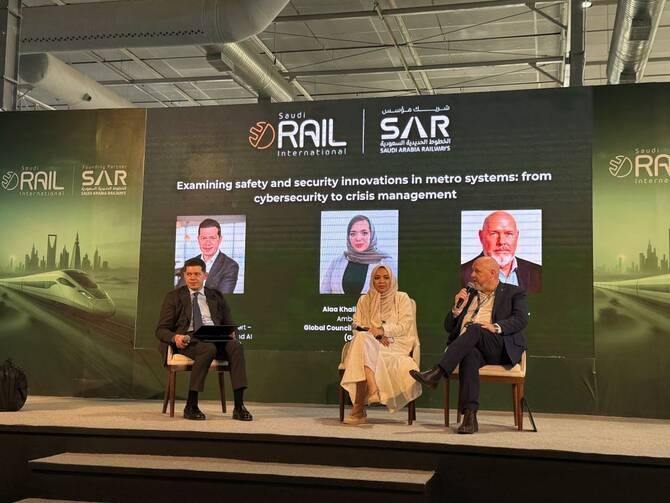Railways play a critical role in driving industrial and economic development in Saudi Arabia, Vice Minister of Industry and Mineral Resources for Industrial Affairs Khalil bin Ibrahim bin Salamah said at the Saudi International Rail Exhibition and Conference in Riyadh. He highlighted that the railway network is essential for transporting raw materials to manufacturing facilities and finished goods to ports and cities, supporting the growth of industrial clusters across the Kingdom.

Salamah noted that the government has established specialized industrial clusters focused on converting raw materials into high-value products. These clusters are integrated through the advanced railway network, creating an organized industrial ecosystem. The development of the railway manufacturing sector and localization of technologies is expected to open major investment opportunities in areas such as locomotives, signaling systems, and wheels.
Junaid Khan, engineer and commercial manager at Metrolinx, discussed the importance of value engineering in designing cost-effective and innovative railway systems. He emphasized that all teams, including design and operations, should be engaged from the outset and that a life cycle perspective is critical for planning. Khan explained that performance-based specifications allow teams to develop efficient solutions, accounting for both operational and capital costs, while also incorporating contingency planning and backup reserves. He also highlighted how artificial intelligence and emerging digital technologies can improve efficiency, reduce waste, and enhance predictive decision-making at each stage of development, including clash detection and asset management.
Addressing cybersecurity and crisis management in metro systems, Alaa Khaled, global ambassador for the Global Council for Responsible AI and cybersecurity director at Maaden, stressed the need for preparedness. She cited COVID-19 as an example of an unexpected crisis and said disaster management, recovery plans, and practice drills are essential to ensure resilience. Martin Jackson, Health, Safety, Environment, and Quality director at Capital Metro Company, added that while automated metro systems are novel in Saudi Arabia, ensuring public understanding and safety is key. He noted that although technology is largely stable, staff are trained to prioritize passenger safety and protect assets in case of malfunctions.
Khaled further explained that digital systems must be optimized for both performance and cybersecurity. She suggested separating points of connection and isolating operational technology from internet connectivity to prevent system-wide disruptions in the event of a cyberattack. She also advocated a hybrid approach to technology, using an open-source model internally and vendor solutions externally to balance efficiency and innovation.
Jackson noted that Riyadh Metro is still in its early stages but stressed that the system is customer-focused. With major upcoming events like the AFC Asian Cup in 2027 and FIFA World Cup in 2034, the Kingdom is committed to enhancing railway operations. Predictive analytics and in-house learning models are being employed to help operators interpret data securely without external exposure.
A key development at the conference was the signing of an agreement between the Royal Institute of Traditional Arts and the Saudi Railway Company to showcase traditional Saudi arts within national transport systems. The initiative will include workshops and programs designed to empower local artisans and promote the country’s rich cultural heritage.
